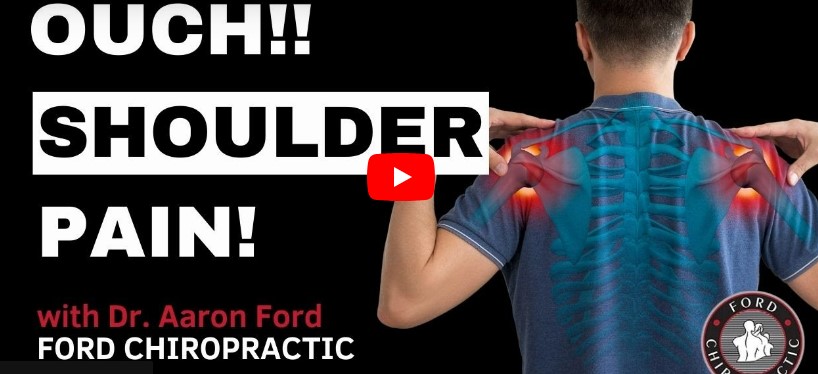Exploring the Common Causes of Shoulder Pain
Shoulder pain is a prevalent issue that can significantly impact one’s quality of life. Dr. Aaron Ford discusses the various causes and treatment options for shoulder pain in his informative video. Shoulder problems often manifest gradually, with individuals experiencing pain when engaging in everyday activities such as reaching or lifting. Dr. Ford highlights common triggers, such as sleeping in an awkward position or starting a new exercise regimen.
Impingement: A Common Culprit of Shoulder Pain
Impingement, a leading cause of shoulder pain, occurs when the tendons of the rotator cuff become entrapped and irritated. As we age, wear and tear can cause the tendons to thicken, leading to impingement. Activities that involve lifting the arms above the head or repetitive overhead movements can exacerbate this condition, resulting in discomfort and reduced range of motion in the shoulder. Dr. Ford emphasizes the need to identify and refrain from activities that aggravate the impingement, and suggests methods to alleviate the underlying inflammation.
Bursitis, Tendinopathy, and Frozen Shoulder: Additional Challenges
In addition to impingement, bursitis, tendinopathy (or tendinosis), and frozen shoulder are common causes of shoulder pain. Bursitis, characterized by the inflammation of fluid-filled sacs that cushion the shoulder joint, can lead to discomfort and limited mobility. Tendinopathy involves the irritation and micro tears of the tendons, causing persistent pain. Frozen shoulder, or adhesive capsulitis, restricts shoulder movements and can last for an extended period, often resolved over time but possibly requiring professional intervention. Dr. Ford underlines the importance of proper diagnosis and tailored treatment approaches for these conditions to alleviate discomfort and restore shoulder function.
Understanding Arthritis as a Contributing Factor
Advanced age often brings the risk of developing arthritis in the shoulder joint. Individuals may mistake arthritic shoulder pain for other conditions, such as frozen shoulder, due to overlapping symptoms. X-rays can aid in identifying arthritis, prompting the need for targeted management strategies to mitigate pain and maintain shoulder mobility.
Treatment Approaches for Shoulder Pain
Dr. Ford explains that treatment for shoulder pain involves various specialized techniques. Restoring range of motion in the shoulder is a key focus, with specific methodologies utilized to encourage flexibility and mobility. Additionally, addressing the underlying issues of tendons and bursa through targeted treatments is crucial. Techniques such as laser therapy can aid in reducing inflammation and promoting healing within the shoulder joint. Moreover, Dr. Ford emphasizes the importance of recognizing that shoulder pain may have a cervical origin, originating from a pinched nerve in the neck. Comprehensive evaluation and targeted treatment are vital to addressing the root cause of the discomfort.
Empowering Patients with Knowledge and Solutions
Dr. Ford’s expertise allows him to assist patients in understanding the nature of their shoulder pain and developing tailored treatment plans. By elucidating the various conditions that can contribute to shoulder pain, patients can become informed advocates for their own health. Armed with knowledge, individuals can work collaboratively with healthcare professionals to address their shoulder issues effectively.
Conclusion
Dr. Aaron Ford’s insightful discussion sheds light on the multifaceted nature of shoulder pain. By assessing the common causes and treatment options for shoulder discomfort, individuals can gain a deeper understanding of their condition and explore avenues for relief. Through targeted interventions and a comprehensive approach, individuals can navigate the challenges of shoulder pain with support from knowledgeable healthcare providers, ultimately regaining comfort and functionality in their daily lives.
Contact us today at Ford Chiropractic, and let Dr. Ford help you with your shoulder pain!


